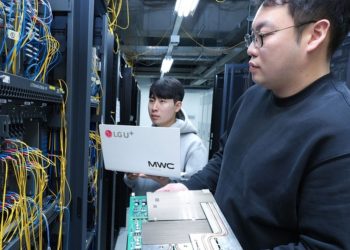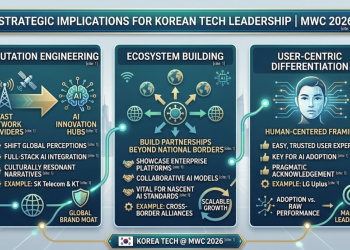South Korea’s leading telecom operators—SK Telecom (SKT), KT, and LG Uplus—have entered into a memorandum of understanding (MOU) to create and launch a unified “Network Open API” standard within this year.
The initiative is designed to simplify app development and speed up the process by aligning the domestic mobile telecommunications landscape with global standards, thus making it easier for developers to enter the market.
Until now, each telecom company provided its own set of APIs, allowing third-party developers to integrate applications with their networks. However, the absence of a unified standard has created challenges for developers, such as increased complexity and longer development times. The new agreement seeks to simplify these processes, promote interoperability, and accelerate digital innovation across the industry.
The three telecom operators are working together to establish unified standards under the “Network Open API” initiative, allowing developers and corporate customers to build applications compatible across all three networks.
Inspired by global efforts like the GSMA Open Gateway initiative and the Linux Foundation’s Camara Project, the operators aim to create standardized APIs that can seamlessly connect with services worldwide.
Ryu Tak-ki, head of infrastructure technology at SK Telecom, noted that mobile networks are transforming beyond basic connectivity into platforms that generate new services using AI and data-driven APIs. “We can reduce development costs for external customers and improve services,” Ryu explained, highlighting the benefits of standardized APIs. This effort is expected to create a more efficient development process and lower costs for external customers, fostering a more innovative telecom environment.
The collaboration has led to an agreement to create six network API standards in partnership with the Korea Information and Communications Technology Association (TTA). These standards will address key areas, including personal data protection, mobile financial security, and communication quality. For instance, the ‘Number Verification’ API is designed to enhance security beyond the traditional SMS-based OTP systems, while the ‘SIM Swap’ API is aimed at preventing fraud by reinforcing mobile phone authentication methods.
Lee Jong-sik, head of KT Network Research Institute, emphasized the global impact of this collaboration, stating that the unified APIs will allow for diverse services both domestically and internationally. He added, “We will promote technology development and standardization to globally support various customer requirements such as service quality, authentication, and security enhancements.”
In early 2023, KT joined 20 other global telecom operators to back the Open Gateway initiative, a framework to establish universal network APIs. This initiative has gained momentum as operators worldwide recognize the need for standardized APIs to simplify integration with external applications and support innovation across networks.
Lee Sang-heon, Head of Network Advance Development at LG U+, spoke about the collaboration among South Korea’s three major telecom companies. He noted that this joint effort would open doors for new services that deliver added value to customers. “This collaboration between the three telecom companies has paved the way for innovative services that can provide new value to customers,” he stated,
The cooperation among SK Telecom, KT, and LG U+ marks a pivotal shift towards a more unified telecom environment in South Korea. This collaboration is expected to facilitate digital innovation and provide a foundation for global interoperability.
Also Read:
- SK Hynix Unveils World’s First 16GB DDR5 Chip with 6th-Gen Technology
- Samsung Promises Seven Years of OS Updates for New AI Smart TVs
- Hanwha Aerospace Launches First Overseas Production Facility in Australia
- Kakao Announces Merger of DK Techin and Kakao Brain
- SK Telecom and Lambda Unveil Major AI Cloud Initiative with New GPU Cluster in Seoul







